CHAMPION OF BARISTAS
Wong Ruoqi "Chris" excelled in the art of coffee at Singapore National Barista Championship 2024
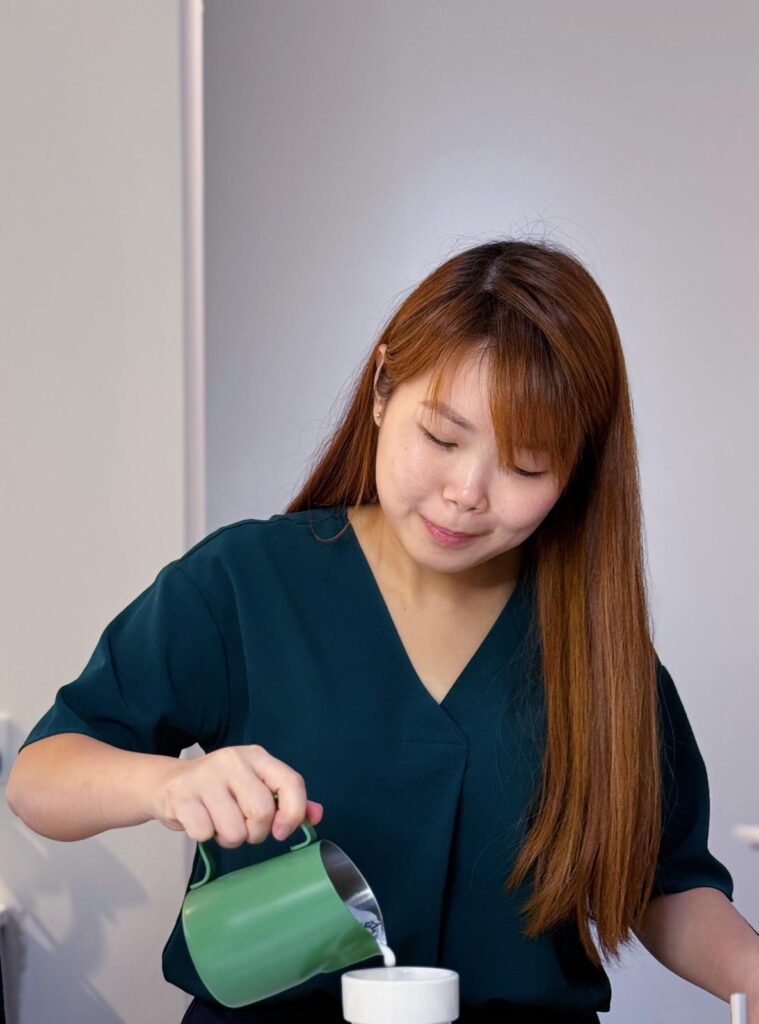
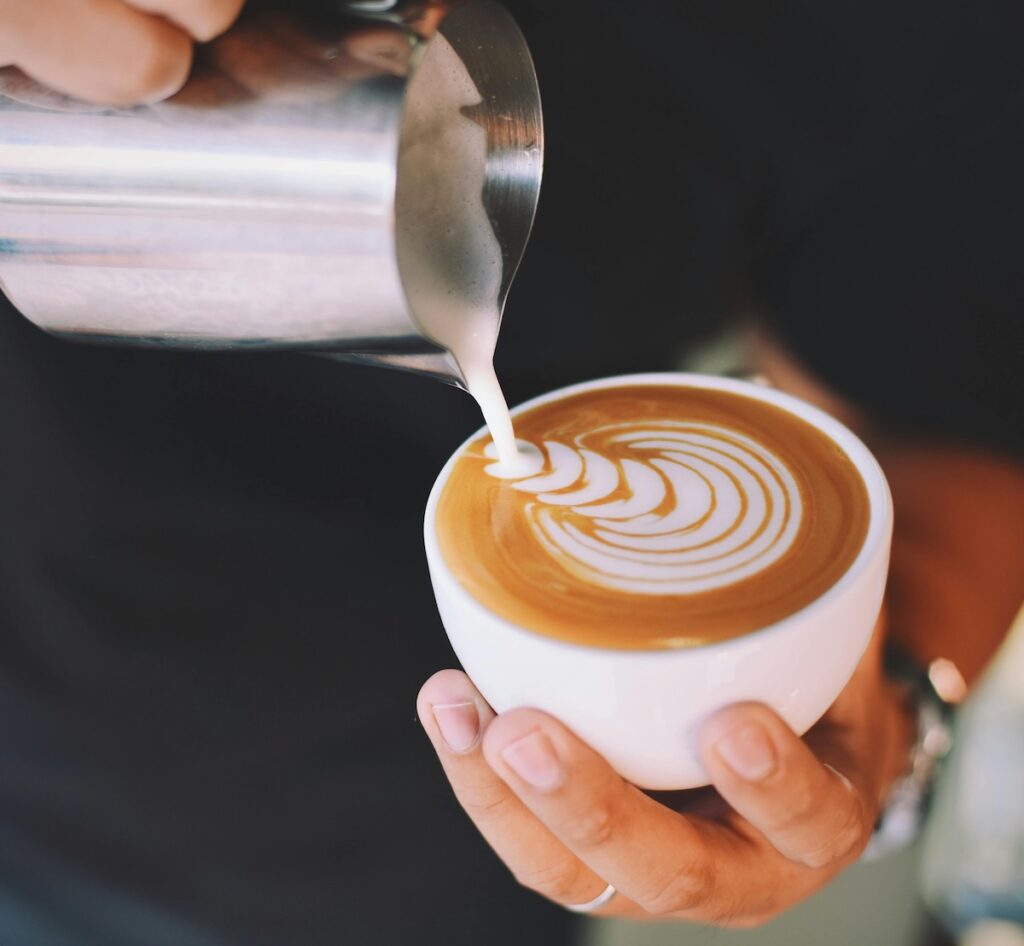
THE OLYMPICS have their champions. The World of Coffee has Wong Ruoqi. She is champion of Singapore National Barista Championship 2024, where she impressed with her skills in preparing espresso-based drinks across the espresso, milk, and signature beverage courses. Ruoqi also known as Chris, will head to Milan in 2025 to showcase her winning-talent at the World Barista Championship.
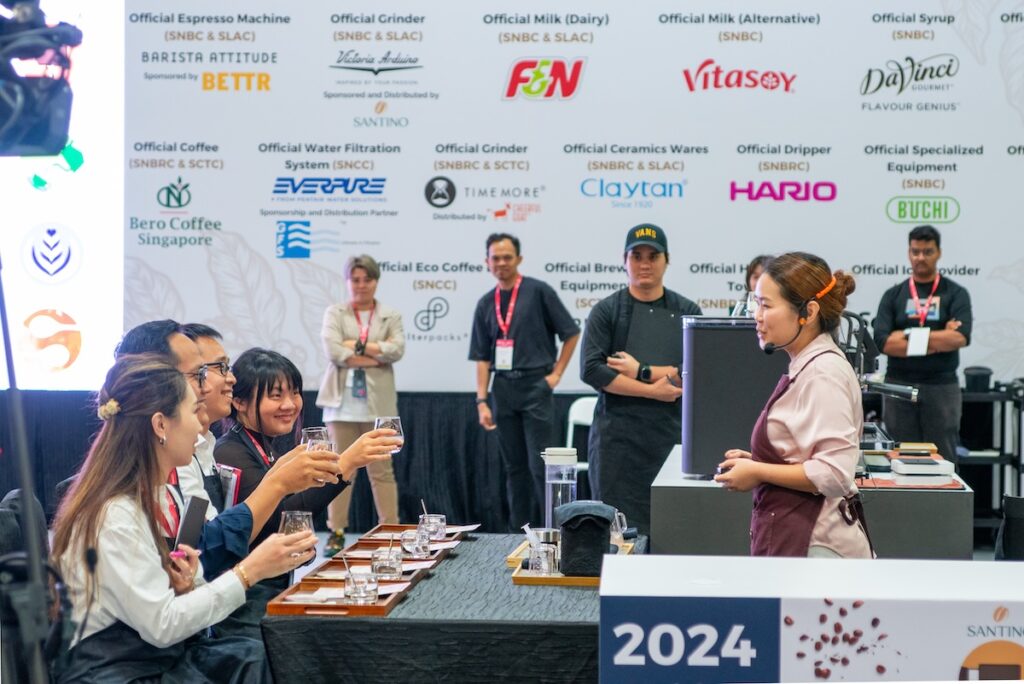
Wong Ruoqi impresses the judges at the Singapore National Barista Championship 2024. She goes on to be champion.
“The Singapore National Barista Championship sponsored by Santino is a highly technical category, and I’m happy that all my hard work and preparation has paid off. It will be an incredible honour to fly Singapore’s flag on the world stage. I look forward to showcasing the creativity and passion of our coffee scene in Italy next year,” said Wong Ruoqi (Chris), Singapore National Barista Champion.
Ruoqi is Head of Coffee at gourmet coffee establishment Santino, where she sources green beans, conducts quality control and assurance on both raw materials and finished products. Santino roasts and supplies traditional coffee powder, and gourmet and specialty coffee, as well as coffee-related products.
“Beyond work, I have a deep passion for all things beverage-related, whether it’s tea, wine, or whiskey. I endeavour to constantly innovate,and bring creativity and perfection to everything I do.”
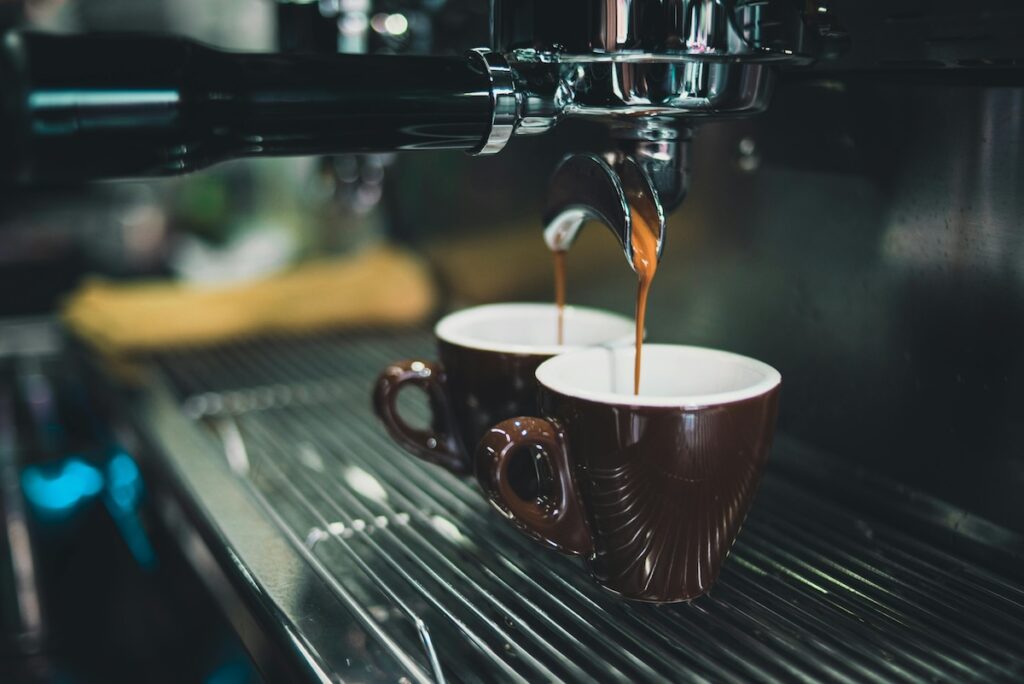
A CHAT WITH WONG RUOQI "CHRIS" – SINGAPORE NATIONAL BARISTA CHAMPION 2024
“The views expressed in this interview represent my own thoughts and opinions and not those of the company” – Wong Ruoqi:
1 Do you need expensive $8,000 coffee machines to create good coffee and latte art?
The necessity for equipment depends on the specific circumstances and needs. In a cafe environment, high-spec machines and grinders are essential to ensure productivity and maintain beverage quality. Conversely, for personal use at home, a single group head machine can also produce excellent coffee. Ultimately, it is not solely about the price of the machine; with good coffee beans, appropriate techniques and a thorough understanding of the equipment, one can achieve high-quality coffee and impressive latte art.
As an international melting pot, Singapore not only features the typical cafe culture but also a localised version in the form of Nanyang (Hainan) Coffee
2 What are the key differences in flavour between drip coffee and machine-extracted coffee?
Due to the differences between brewing methodologies, several factors can still contribute towards different flavours including the roast profiles, grind size and the different pressures in the equipment used.
Drip coffee is smooth, balanced, and easier to drink while also retaining a more complex flavour profile. Espresso is more intense, with a richer body, and significantly stronger than drip coffee.
3 From which coffee region do you like your beans and flavour profile?
Personally, I have a preference for Ethiopian coffee. It tends to be more floral and fruity, which results in a brighter and more elegant cup. I’m reminded of the first time I savoured drip coffee, which featured Ethiopian beans and was a truly mind-blowing experience compared to my previous experience drinking coffee.
4 Is the best coffee only made with arabica beans? How does it compare with robusta?
Honestly, we all have a personal preference for any coffee we may enjoy – they may be made with Arabica, Robusta or a blend of beans. It simply goes back to what we personally enjoy the most when we have our coffee.
Being of different species and cultivated with different methods, Arabica beans in general feature a greater flavour complexity with a less intense body. Comparatively, Robusta beans tend to be more bitter, with a lingering aftertaste.
5 Does Singapore have a vibrant coffee culture? How can we improve?
Singapore has an extremely vibrant coffee culture that is woven into the very fabric of the country itself. As an international melting pot, Singapore not only features the typical cafe culture but also a localised version in the form of Nanyang (Hainan) Coffee. The Singapore coffee industry as a whole has continued to develop in a unique way, pushing boundaries to achieve greater heights and put Singapore on the global stage of coffee.
That being said, there is a lot of potential for the industry to grow and collaborate. Competitions such as the Singapore National Coffee Championship, staged by the Singapore Coffee Association, are great platforms for baristas and coffee enthusiasts to showcase their skills and service excellence, and go on to represent Singapore on the world stage. Trade events, such as this year’s Speciality Coffee & Tea Asia held at the first-ever SIGEP Asia in June 2024, also offer a great meeting point for local industry players to showcase our coffee products to a wider audience and learn from one another.
6 Which city do you enjoy having your coffee, breakfast (or brunch) and the surrounding scenes? What do you order?
I don’t have a specific city in mind as I make it a point to try out as many coffees as I can in different cities/countries, engrossing myself in their local cultures and ways to gain a better appreciation of their coffee. I love to observe their cafe practices upfront and personal – from their barista’s routine to how the customers interact in that space.
If I were to name a personal preference, it would be Japan for their filter coffee.
7 How do you relax after a hard day at work? And what Singapore food do you enjoy with coffee?
I love food, and enjoying an excellent dinner after work is indeed comforting. Be it a Michelin-starred restaurant or the hawker centre, I go where good food takes me and enjoy every moment.
The Singapore food that I personally think still pairs best with coffee is the breakfast set with half-boiled eggs and kaya butter toast – an amazing experience I’d recommend to anyone.
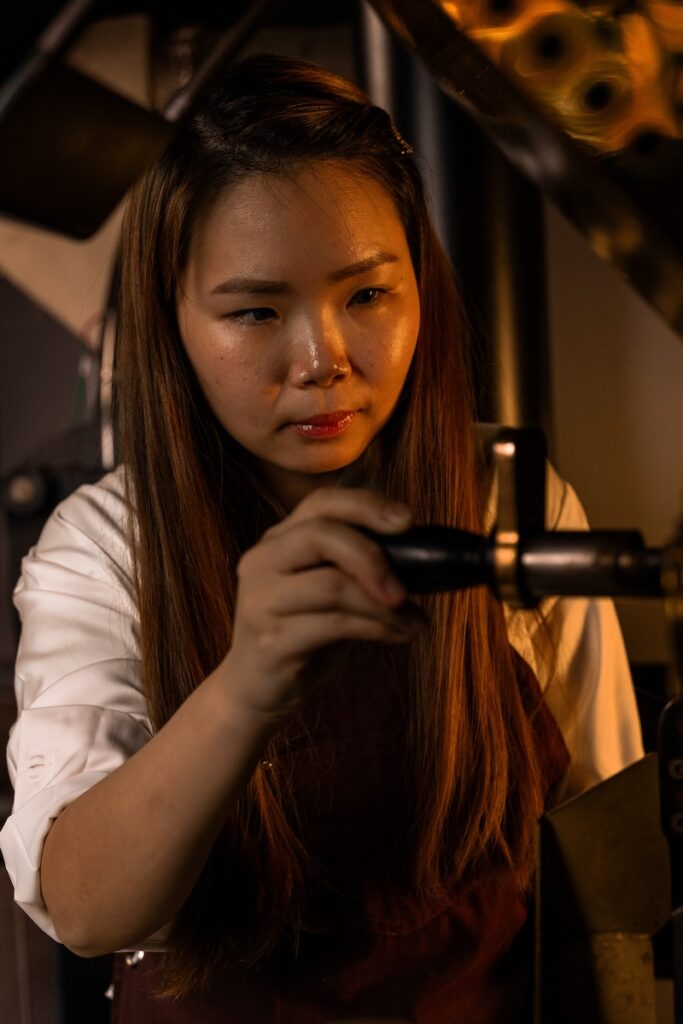
"Personally, I have a preference for Ethiopian coffee. It tends to be more floral and fruity, which results in a brighter and more elegant cup."
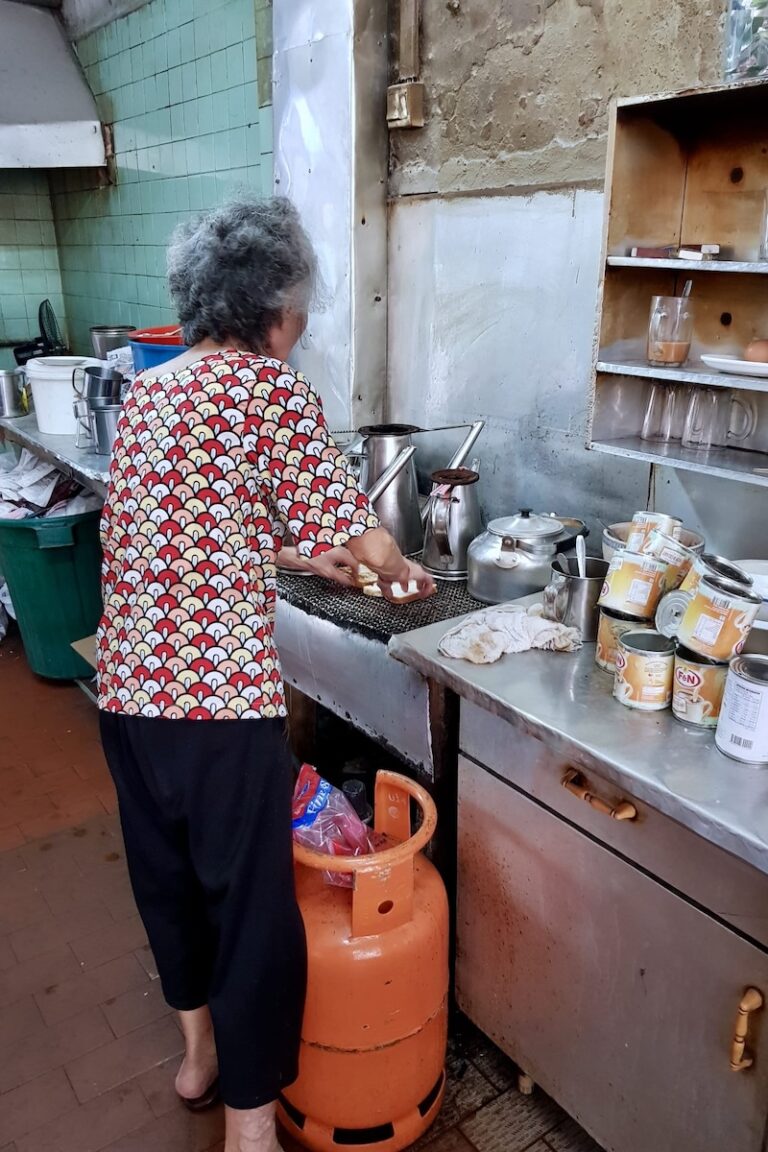
Singapore-style kopi culture based on Nanyang Coffee
"Singapore has an extremely vibrant coffee culture that is woven into the very fabric of the country itself. As an international melting pot, Singapore not only features the typical cafe culture but also a localised version in the form of Nanyang (Hainan) Coffee." – Wong Ruoqi
Story by Carol Kraal. Respective photographs of Wong Ruoqi courtesy of Santino
